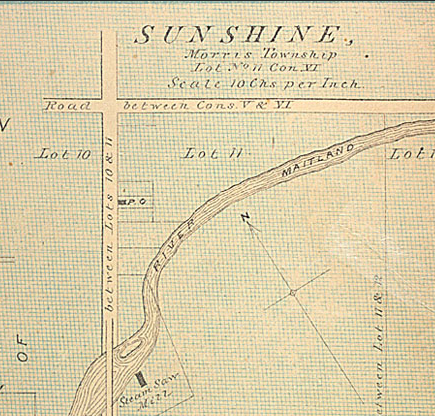If you’re out touring County Roads this summer, you may notice some new brown and white heritage signs marking Huron County’s historic settlements. The project was initiated by the County’s Public Works Department as a way to remember these communities that once existed in Huron. To date, 23 signs have been erected, including three signs marking communities that still exist, but under a different name. This summer, our student Maddy Gilbert will explore the history of some of these settlements.
Sunshine was founded as the Village of Providence in 1868 by Alfred “Paddy” Brown. He had high hopes for the village, although it would not last very long. The post office opened in 1874, with W.F. Cornell acting as the postmaster. By 1879, there was a plow store and a general store, the general store being operated by Robert Crittenden.
The local Orange Lodge was used as a meeting place for the Sons of Temperance, a brotherhood who supported the temperance movement. The Sons of Temperance were founded in 1842, and quickly spread across Canada and the United States.
In 1886, the church improved its facilities with the addition of stone walls and a new roof. They expanded the burial grounds, and added a numbering system. These new lots were put up for sale at $4 each, or $2.50 per half lot.
Much like other pioneer settlements who failed to find their niche, the decline of Sunshine was due to the popularity and superiority of the local railway towns, such as Brussels and Blyth.
In 1899, only three houses remained in Sunshine. Those were the houses of Milton Watson, the Fleming Sisters, and one other individual. The last church service in Sunshine was held on Aug. 21, 1927.
Sunshine was located at the intersections of Huron County Road 16 (Morris Road) and Martin Line. The cemetery is located a short distance down Martin Line. Sunshine is 8km west of Brussels, 15 km southeast of Wingham, and 12 km northeast of Blyth.


